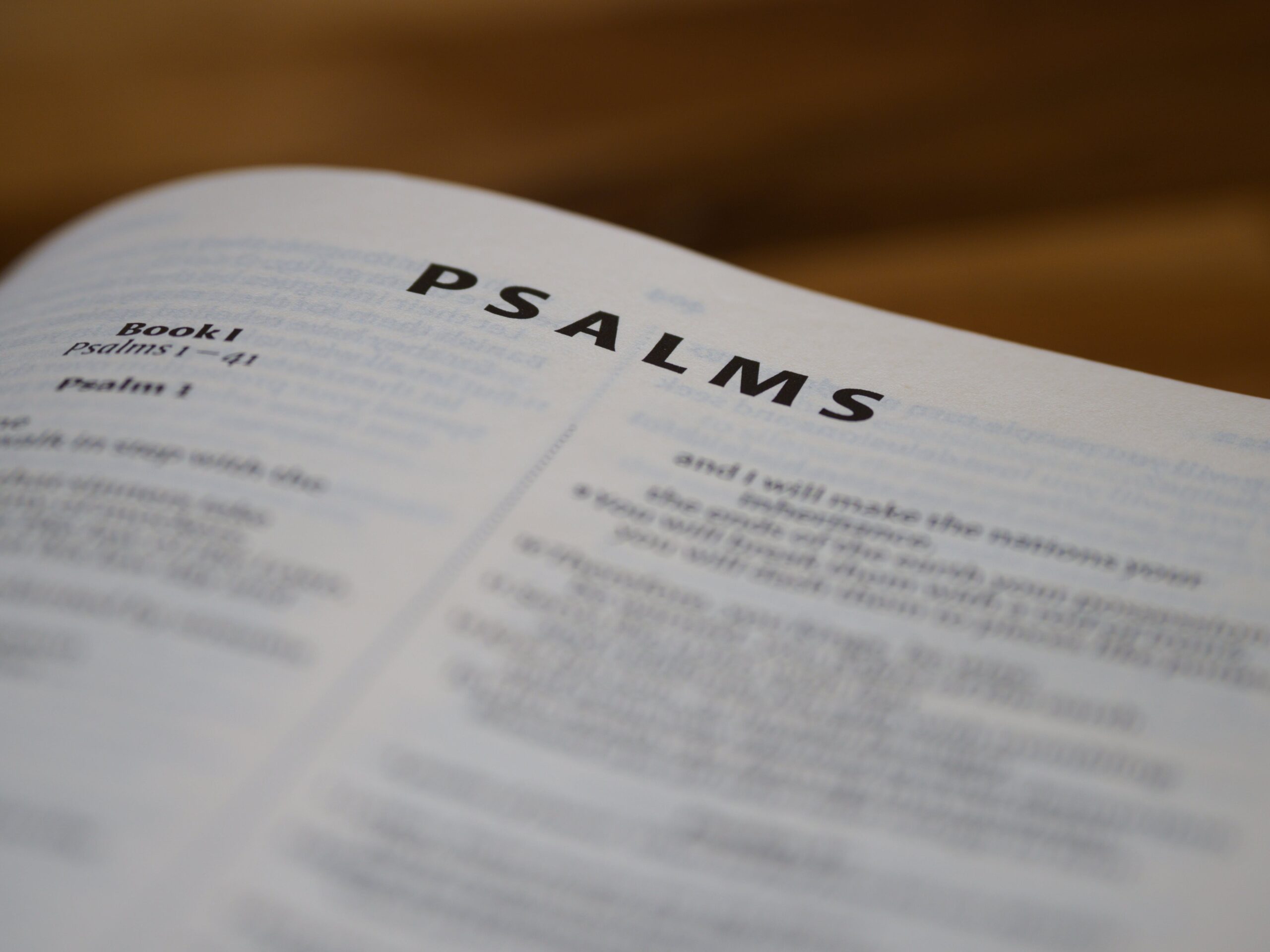Session 4 – Psalms 42 & 43: the depths of despair
Depression is very common and our relationship with God can become destabilised. How can the darkness of depression serve the purposes of God?
In session 4 we:
-
- Review the emotions commonly associated with depression
- See how these emotions are reflected in Psalms 42 & 43 but also the presence of hope and trust.
- Explore the depths that are expressed and the feelings of separation and distance from God.
- Focus on the wisdom in the psalms as we learn how to talk to ourselves.

Session 4 Outline – from Powerpoint (in video)
(1) A brief definition of depression but the focus here is on the associated emotions rather than a formal understanding and diagnosis of depression
(2) Psalms 42 & 43 are effectively a single psalm and demonstrate all the emotions associated with depression
(3) In Psalms 42 & 43, a battle is going on between despair and hope. A key refrain offers wisdom, speaking into those times when we are despairing and feel abandoned by God.
(4) Big questions are asked and we see to what extent they are resolved or not.
The structure of the session comes from the Powerpoint (in the video). You can download the powerpoint here.
What is depression?
We use a definition of depression that focuses on the emotions and feelings associated with depression rather than the symptoms.
Depression is ‘an emotional state of dejection and sadness ranging from mild discouragement and downheartedness to feelings of utter hopeless and despair’ (World Health Organisation).
In the two psalms we are focussing on – Psalms 42 & 43 – we see all these emotions. In addition to these emotions, we also importantly see hope and trust displayed.
‘Put your hope in God,
for I will yet praise Him,
my Saviour and my God’
Exercise: Psalms 42 & 43
Psalms 42 & 43 are effectively one psalm with a common refrain.
42:1-4 ‘I feel dry’
42:5 Chorus ‘Why are you downcast?’
42:6-10 ‘I feel overwhelmed’
42:11 Chorus ‘Why are you downcast?’
43:1-4 ‘I feel abandoned’
43:5 Chorus ‘Why are you downcast?’
The emotions are raw and the accusations against God are strong – ‘Why have you forgotten me?’ and ‘Why have you rejected me?’
The chorus or refrain is the key, occurring on three occasions. The psalmist is no longer talking to God but talking to himself and it is the wisdom in this counsel that underpins these psalms.
Psalm 42 - To the Choirmaster. A Maskil of the Sons of Korah
The heading to Psalm 42 gives us two things to ponder.
A ‘maskil’ is a Hebrew word whose meaning is not totally known but it probably means ‘wisdom’. It is an example of wisdom literature in the Old Testament. The main ‘wisdom’ books are Job, Eccllesiastes and Proverbs. Their purpose is outlined at the start of Proverbs: ‘for gaining wisdom and instruction; for understanding words of insight; for receiving instruction in prudent behavior, doing what is right and just and fair’ (Prov 1:2-3).
You can find out more in the Follow-up Resources.
The Sons of Korah wrote 11 of the psalms. The original Korah however led a rebellion against Moses and Aaron which led to the rebels being swallowed up by the earth (Numbers 16). It is yet another story of failure in the Bible but which eventually leads to redemption as the ‘sons of Korah’ serve as doorkeepers and worship-leaders in the Temple.
You can find out more about the story of the sons of Korah, click here.
Lord from Sorrows Deep I Call
There are very few modern worship songs that allow us to express the emotions that we find in the lament psalms.
Matt Papa and Matt Boswell’s ‘Lord from Sorrows deep I call’ is however a notable exception.
Based on Psalm 42, the full range of desperation mixed with hope is expressed in this modern hymn.
Opening lyrics
Lord, from sorrows deep I call
When my hope is shaken
Torn and ruined from the fall
Hear my desperation
For so long I’ve pled and prayed
God, come to my rescue
Even so the thorn remains
Still my heart will praise You
